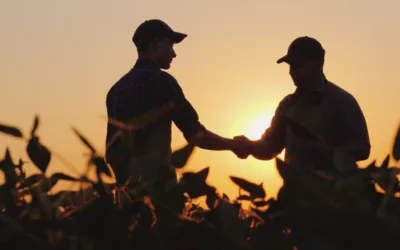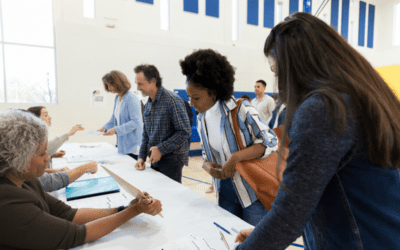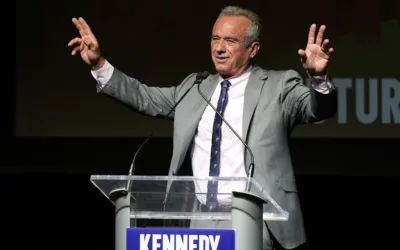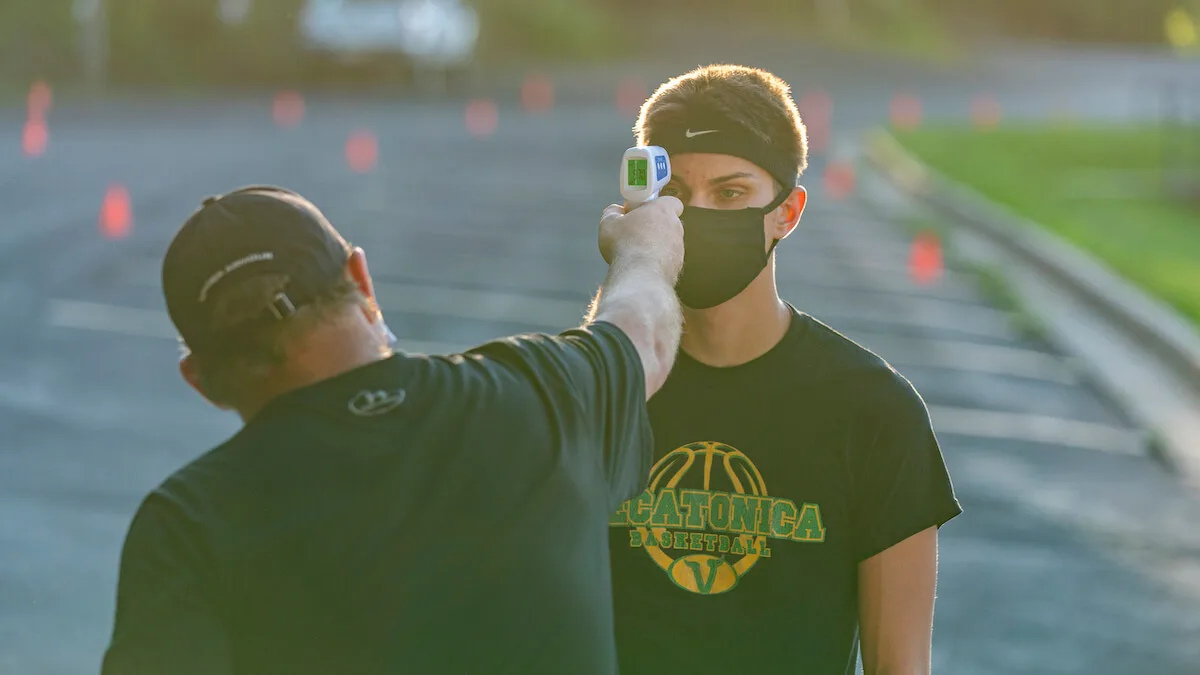
#image_title
County-by-county COVID numbers dictating when high school sports resume for the fall.
The coronavirus has touched every aspect of life. That includes high school sports.
On July 5, the Pecatonica-Argyle football Vikings football team returned to practice with some major differences from years past. For starters, players must first be cleared for practice by having their temperature checked and answering a list of questions.
If they are fever-free and wearing a mask, they are allowed to join the team to practice. The weight room has been strategically set up so that the athletes using the equipment are facing the walls and not each other. No more than 10 of the players work out at a time and workouts are staggered, occurring outside as much as possible.
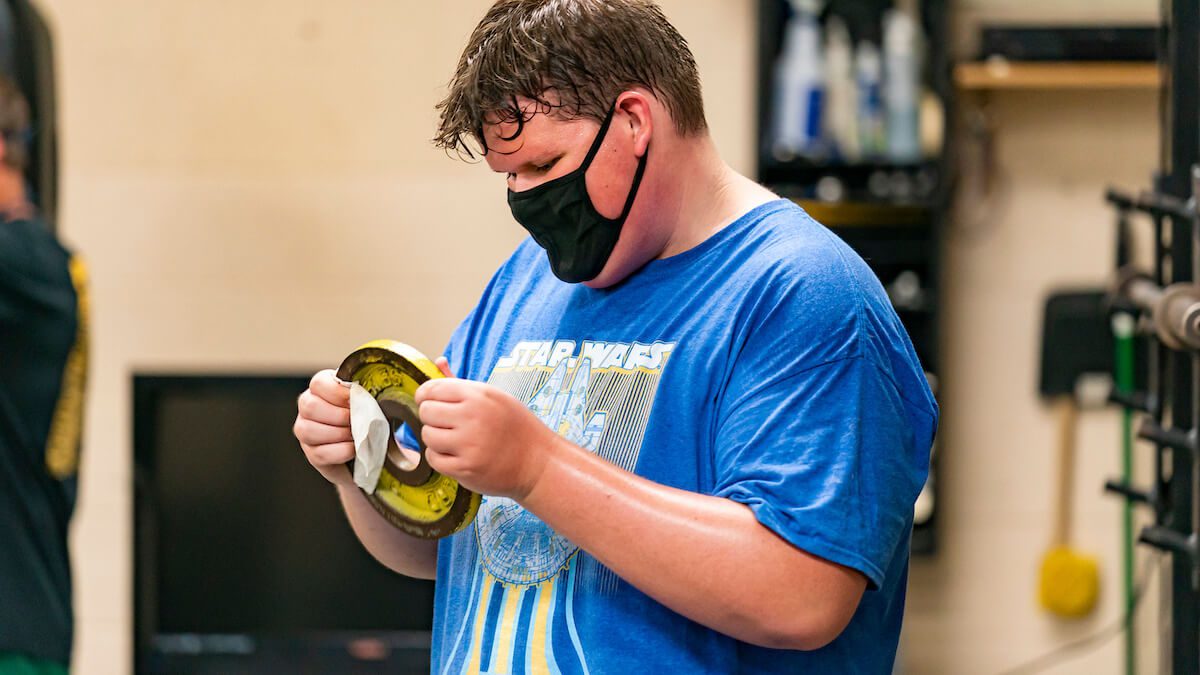
Pecatonica-Argyle Schools athletic director Paul Manriquez said his coaches are beginning conditioning work with fall athletes under COVID-19 reopening guidelines issued by the Wisconsin Interscholastic Athletic Association.
“I think we have a solid plan in place, thanks to the WIAA guidelines, but nothing is bullet proof,’’ he said. “Our goal is to do what we can, in a safe manner, to get the kids back to a sense of normalcy.”
A recent study from the University of Wisconsin School of Medicine and Public Health (SMPH) indicates that, despite a surge in COVID cases, this return to normalcy for high school athletes might be just what the doctor ordered.
Dr. Tim McGuine and his colleagues surveyed 3,200 athletes in 71 of Wisconsin’s 72 counties. They found the physical activity levels of the athletes had declined by 50 percent when the survey was taken in May.
McGuine and other sports medicine experts presented the results of the survey of state athletes to the Wisconsin Interscholastic Athletic Association last week that suggests that 66,000 high school athletes are suffering mental health effects due to the COVID-19 pandemic closures.
That equates to the spring shutdown of Wisconsin high school sports contributing to symptoms of depression and anxiety in two-thirds of high school athletes, according to the study.
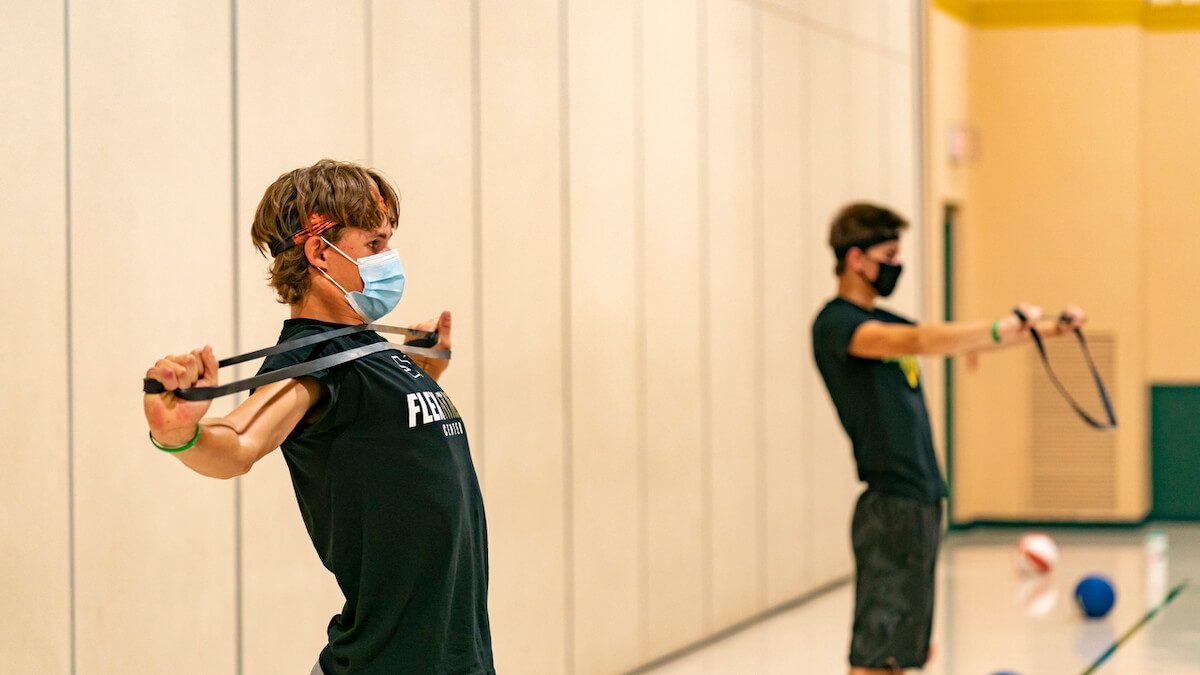
Dr. Claudia Reardon, an associate professor at SMPH and consulting sports psychiatrist to Badger athletics, said the results show the importance of physical activity to maintaining mental health.
“We know that exercise is a powerfully antidepressant and powerfully antianxiety,’’ said Reardon, one of the study authors. “Exercise has biological effects on our endorphins, which are our feel-good brain hormones.”
Beyond that, Reardon said that even the Division 1 athletes that she counsels on the University of Wisconsin-Madison campus are struggling with the loss of structure that came from the sudden shut down of their sports.
“They went from being completely structured, with painfully busy and over-scheduled lives, to the opposite extreme,’’ she said. The same is true for many high school athletes, who now wonder, she said, “Is there any reason to get out of my pajamas?’”
Manriquez wasn’t surprised at the results presented at the WIAA virtual meeting.
“Sports are such an identity for students,’’ said Manriquez, who formerly coached football and baseball and is the father of teenage athletes. “It’s the conditioning and working out, yes, but also being able to connect with your peers outside the classroom.”
July 1 marked the day that Wisconsin high school coaches could begin having organized contact with their fall teams, as long as it was allowed by local public health guidelines. For this reason, sports programs in places like Dane County, which is seeing a resurgence of COVID-19 cases, remain closed.

Pecatonica-Argyle High School junior, Lily Foreman, plays running back and middle linebacker on the football team. The 16-year-old has played football since middle school. Her track season was canceled in spring because of the coronavirus. To keep her in shape for the upcoming football season, her parents bought her a treadmill and a pull up bar.
When she heard football training was going to start, she said she and her mom sat down at the kitchen table to talk about the rules.
She said she had to decide whether she could abide by the rules and wear the mask. It didn’t take long for her to decide to join her teammates and start practicing for the season.
“It sucks but at the same time it is fine,” said Foreman of the mask-wearing protocol. “At least we don’t have to sit around the house and do nothing anymore and worry about whether or not we can go back and play our sports.”
Foreman said questions remain, such as if players will wear special helmets or be required to wear masks underneath their helmets or long-sleeve shirts to prevent direct contact on their skin.
Whatever the answers, she said she is grateful she lives in a smaller community where the number of coronavirus cases are not preventing their teams from returning to practice.
“I feel like the world is slowly but surely going back to the way it was,” Foreman told UpNorthNews Tuesday. “I feel much better being able to get out of the house and spend time with my team.”
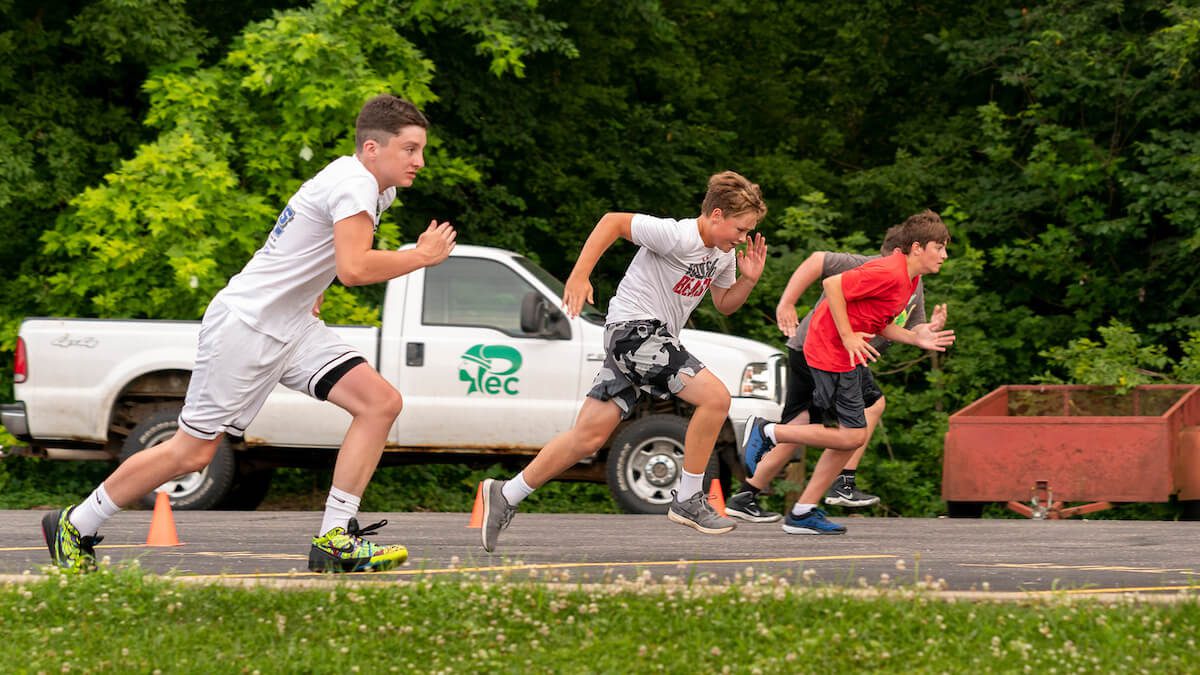
Other high school athletes like Coltrane LoBreglio are still waiting.
LoBreglio is looking forward to a senior season as goalie for the Oregon High School Panthers. But his team, like others in Dane County, can’t begin school-sanctioned practices until at least August. His spring season with Madison FC, his club team, was completely canceled, a bitter pill since his team ended the previous season losing in the state championship match.
“I can’t even imagine how it felt for the seniors who graduate and aren’t going to be able to play again,’’ says LoBregolio, who says the last four months have been the longest he’s been away from the sport since he started playing as a little kid.
Reardon, the UW sports psychiatrist, said that even at schools where sports can’t meet, coaches should keep in touch with players and offer support online or by phone. Apps such as Fit Brain, Head Space or Calm might help students manage their emotions.
“There is still a major role for a coach to stay involved. Coaches are such a valuable part of kids’ lives, a person they can trust and check in with,’’ she said. “Some of these kids don’t have other sources of positivity.”
Coaches and parents should also remember that sports aren’t the only loss teenagers are coping with, Reardon said. They’ve lost access to friends and to school resources like counseling. Their families might be under financial stress, and some teens are suddenly caring for younger siblings so parents can work.
Parents can help by encouraging physical activity. “The pandemic is a great chance to role model physical activity as a family,’’ she said.
But she also cautioned that parents shouldn’t try to take over the athletic training functions of coaches. She’s heard some coaches express concern about parents pushing their student athletes too hard. Injuries can also be an issue after a long time away from training.
Schools deciding whether to bring back sports need to balance the health and safety issues with the social-emotional development needs of their kids, Reardon said. Being on a sports team isn’t just about playing a game.
“Sports give kids social involvement, a sense of accomplishment and feeling good about pushing yourself hard during a practice and working together as a team,’’ she said, all things teens have lost during the COVID-19 epidemic.

This billionaire’s PAC is spreading a big lie about Tammy Baldwin, Medicare, and taxpayer savings
Restoration PAC, funded by Uline’s Richard Uihlein, twists the significance of forcing Big Pharma to negotiate for lower bulk pricing on Medicare...

New Biden rules deliver automatic cash refunds for canceled flights, ban surprise fees
In the aftermath of a canceled or delayed flight, there’s nothing less appealing than spending hours on the phone waiting to speak with an airline...

Opinion: It’s time for Congress to fight for small businesses instead of big corporations
May is National Small Business Month. Our elected leaders need to show leadership all year long. For the past 27 years I’ve been fortunate to pursue...

Biden makes 4 million more workers eligible for overtime pay
The Biden administration announced a new rule Tuesday to expand overtime pay for around 4 million lower-paid salaried employees nationwide. The...


